Nuts and Seeds are Good Mood Foods
Your brain is an energy-hungry powerhouse. That’s why you need to keep your brain fueled with nutrient-dense foods to maintain its optimal performance. Nuts and seeds are loaded with nutrients that your brain needs for energy, concentration, mood, sleep, and to avoid memory loss — which all have an impact on your mental health.
The brain is highly susceptible to oxidative stress, a major contributor to neurodegenerative diseases. Oxidative stress and inflammation impact the aging process, mild cognitive impairment, depression and other brain disorders.
Good mood foods help support the nutritional requirements for mental health, and protect the brain from degenerative damage.
How?
A small serving of nuts/seeds provides a mix of healthy fats, proteins and slow-burning carbohydrates to:
- Make the neurotransmitters necessary for brain cells to communicate
- Keep your mood, motivation, and energy stable
In addition nuts and seeds are:
- known to decrease inflammation
- rich in antioxidant vitamins, especially B1, B9 and E. Vitamins protects cells from oxidative stress caused by free radicals. Vitamin E can support brain health especially in older age
- are good sources of essential minerals magnesium, copper, manganese, zinc, iron
- are a major source of L-argine – an amino acid that helps cerebral blood flow and cognitive function
- benefit the brain by enhancing cognition, memory, recall and rest
- rich in fiber — an easy way to keep your appetite satisfied, while also fueling healthy digestion and your gut health
Which Nuts?
- Almonds contain a potent brain ingredient called phenylalanine, an essential amino acid that helps produce mood stabilizing hormones adrenaline, noradrenaline, and dopamine. They are rich in vitamin E, a great source of riboflavin, iron, magnesium, and L-carnitine, help improve memory by reducing neuronal degeneration.
- Brazil nuts are a fantastic source of selenium, a hard-to-get antioxidant mineral.
- Cashews contain over 80 nutrients and help increase oxygen flow to the brain. They are good sources of fiber, protein, iron, magnesium, phosphorus, zinc, copper, and manganese as well as sources of polyunsaturated and monounsaturated fats. They also contain the essential amino acid tryptophan, which increases levels of serotonin. Serotonin impacts every part of your body, from your emotions to your motor skills. It can be considered a natural mood stabilizer and helps with sleeping, eating, and digesting.
- Pistachios are rich in prebiotic fiber.
- Walnuts high in anti-inflammatory omega-3 fats, contain up to 20% protein, omega-6 and omega-3 fatty acids essential for healthy brain cell membranes, vitamin E and B6, and help maintain healthy levels of the calming neurotransmitter serotonin which influences our moods and appetite.
- Pecans provide more than 19 minerals and vitamins including vitamin A, multiple B vitamins, folic acid, calcium, magnesium, phosphorus, and zinc.
Eat Seeds
Loaded with vitamins and minerals, like magnesium, vitamin E, and zinc, seeds make a great addition to any diet. They are so simple, inexpensive, and versatile.
- Some are great sources of protein and provide the amino acid building blocks your brain needs to repair.
- They are rich sources of healthy fats like omega 3. In addition, seeds contain more optimal ratios of omega 3 to omega 6, helping to modulate inflammation to protect the health of your brain cells from oxidative damage. This helps regulate blood pressure and gives you a lower risk of a stroke.
Which Seeds?
- Pumpkin seeds are rich in many micronutrients important for brain function including copper, iron, magnesium and zinc
- Flax seeds contain two types of dietary fiber–soluble and insoluble–which help support gut health. Soluble fiber is fuel for beneficial bacteria in your large intestine. These bacteria produce important neurotransmitters like serotonin, dopamine, and melatonin that the brain uses to regulate mood and cognition. Flaxseeds are best eating ground
- Chia seeds have a balance of soluble and insoluble fiber, which act as pre-and probiotics — they help feed the beneficial bacteria in your intestines. They also help produce serotonin, and other important neurotransmitters that help regulate your gut-brain connection.
- Hemp hearts are one of the higher sources of plant protein. They contain more protein than chia seeds or flaxseeds and they provide all the essential amino acids, necessary to produce neurotransmitters. They also contain brain-healthy antioxidants as well as vitamin E and minerals. Hemp seeds have a hard outer shell and a soft inside, which is known as the hemp heart. Hemp hearts also contain the optimal ratio of omega-6 to omega-3s. They can help modulate inflammation associated with oxidative stress and deteriorating mental health
- Sunflower seeds contain a lot of vitamin E, choline – which becomes part of your brain’s master neurotransmitter – as well as selenium which supports brain function and memory. Rich in essential fatty acids, they contain vitamins E C, B1, B3, B5, B6, calcium, magnesium, potassium, zinc and selenium. They also contain tryptophan, which helps the brain to produce the calming neurotransmitter serotonin.
- Pumpkin seeds, also known as pepitas, are an excellent source of magnesium, zinc, copper and iron, all of which are important minerals for brain health. Magnesium is essential for a healthy brain and nervous system. Zinc plays a critical role in regulating communication between brain cells. Pumpkin seeds are high in fiber and protein; they are a rich source of manganese, magnesium, iron, phosphorus, omega 6 and omega 3 fatty acids. A daily handful of pumpkin seeds is a good source of zinc, used in the brain’s hippocampus to enhance memory. Zinc is a critical element in human health but a common nutritional deficiency, especially among children.
Caution: if you have digestive or autoimmune disorders, track the effect nuts have on your digestion. You may want to minimize or avoid nuts.
What to do?
- Choose raw nuts as roasted nuts are often rancid
- Use nuts as a condiment
- For nut butters, buy the ones with oil sitting on top and no sugar added. It’s easy to add nuts and seeds to many of the dishes you already eat. Cashes are wonderful in a stirfry. Add walnuts to a morning smoothie. Toss pumpkin seeds on your favorite salad
- Add to breakfast foods (oatmeal, pancakes and muffins)
- Add chopped nuts to cooked grains (quinoa, brown rice etc.)
- Top stir fry and currys with chopped nuts or seeds
- Sprinkle nuts and seeds on salads
- Add to salads
Here are of my favorite, versatile delicious, nutritious nut recipes to use on fish or chicken, toss with pasta and roasted veggies, or use as a sandwich spread. They also make a great snack on rice cakes or whole-grain toast.
• Pesto – Use any herb: cilantro, parsley, basil or arugula, kale, spinach

• Romesco – Roasted red bell pepper and almond (or walnut), yum!

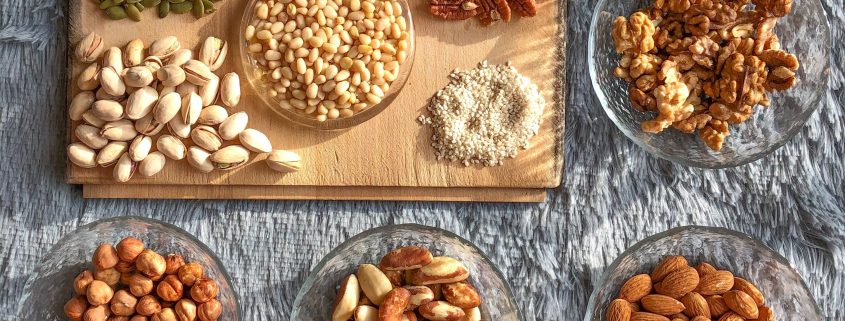

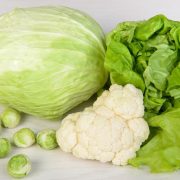

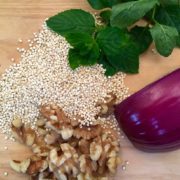
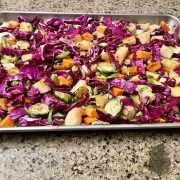

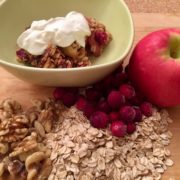


Leave a Reply
Want to join the discussion?Feel free to contribute!